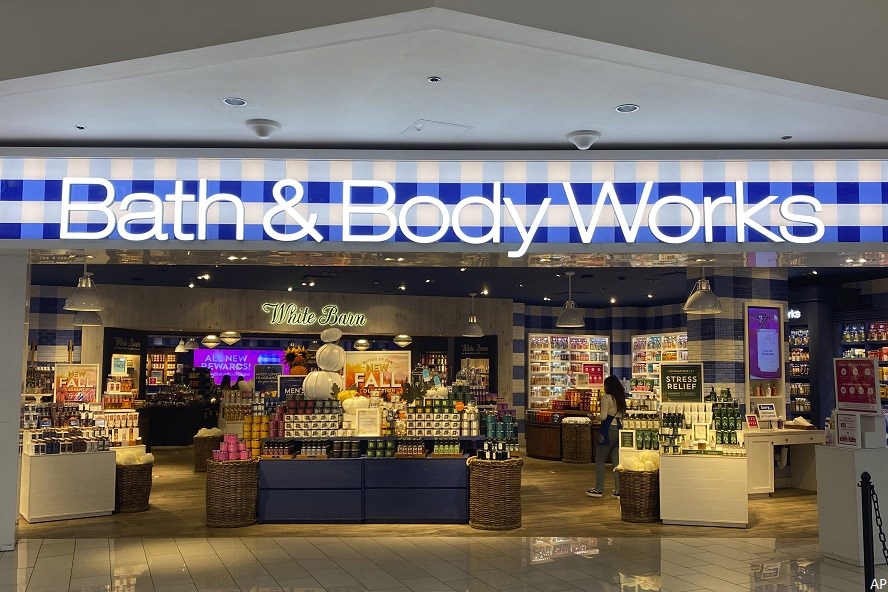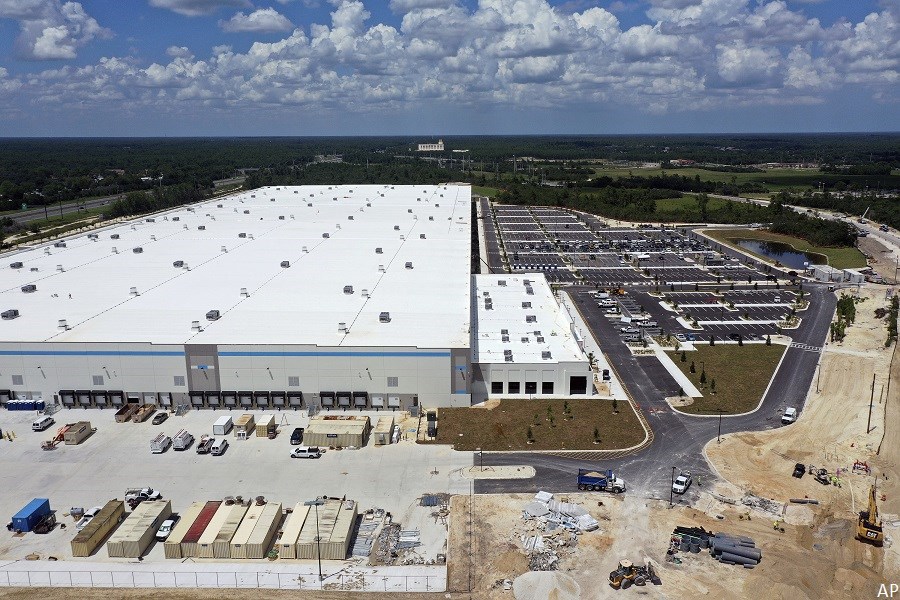
A few months ago, Morningstar's equity research team initiated coverage of one of this year’s most-anticipated IPOs, Coinbase (COIN). Though the company is the leading U.S.-based cryptocurrency exchange, we don’t think it has carved out a competitive advantage and therefore assign it a no-moat rating.
“Coinbase has built a strong competitive position for itself, but without more confidence in the long-term viability of cryptocurrency as an asset class there is too much potential for Coinbase's returns on invested capital to rapidly evaporate for us to award the company a moat,” explains analyst Michael Miller.
But our analysts have initiated coverage of several other companies lately that they think do have sizable competitive advantages--we’ve assigned these companies narrow Morningstar Economic Moat Ratings.
Here’s what our analysts have to say about each company. Note that just one of these stocks is undervalued as of this writing, as measured by the Morningstar Rating for Stocks. They nevertheless make good watch list candidates for quality seekers.
Bath & Body Works (BBWI)
Industry: Specialty Retail
Economic Moat Rating: Narrow
Moat Trend: Stable
Fair Value Estimate: US$79
Morningstar Rating (as of Nov. 5, 2021): 3 stars
“We believe Bath & Body Works has carved out a solid competitive edge in the sizable addressable markets it operates in. The company’s strong brand intangible asset is supported by its leadership position across the bath and shower and candle air freshener industries in recent years, which has been bolstered by BBW’s quick response to consumer trends. Quantitatively, the narrow moat is reinforced by a 30% average return on invested capital that we expect the business to generate over the next decade, well ahead of our 8% weighted average cost of capital estimate.
We think the US$71 billion bath, body, and beauty industry, US$11 billion home fragrance market, and $5 billion soap and sanitizer market still offer a plethora of upside given BBW’s 2020 sales mark of $6.4 billion. The company has outlined a compelling pipeline of opportunities across existing and adjacent categories to reach new consumers and stimulate higher sales conversion ahead. For example, not only can BBW add expansion products like spray hand sanitizer (and in short order, bar soap), but it can also break into underpenetrated categories like skincare and haircare.
This robust pipeline of opportunities should help BBW grow at a healthy 7% pace over fiscal 2022-25. We forecast sales of $9.90 billion in 2025, which is contingent on average sales growth of 3% from North American stores, 10% from the digital channel, and 16% from international opportunities. This should be supported by elevated engagement with the brand, as there is more than 80% brand awareness of women 18-59 years old (and 60% of men in the same cohort). Longer term, operating margins should return to the low 20s (from a pandemic-induced peak of 28% in 2020) as the firm cedes some scale gains from higher pandemic-related demand. Furthermore, while post-coronavirus consumer spending could shift back to categories like dining and travel, BBW should see solid demand trends ahead, with our forecast growth outpacing a flat growth projection (Euromonitor) for the beauty and personal care industry during 2020-24.”
Jaime Katz, senior analyst
Blackstone (BX)
Industry: Asset Management
Economic Moat Rating: Narrow
Moat Trend: Stable
Fair Value Estimate: US$120
Morningstar Rating (as of Nov. 5, 2021): 2 stars
“Blackstone has built a solid position in the alternative asset-management industry, utilizing its reputation, broad product portfolio, investment performance track record and cadre of dedicated professionals to not only raise massive amounts of capital but sustain the reputation it has built for itself as a "go-to firm" for institutional and high-net-worth investors looking for exposure to alternative assets. Unlike the more traditional asset managers, who have had to rely on investor inaction (driven by either good fund performance or investor inertia/uncertainty) to keep annual redemption rates low, the products offered by alternative asset managers can have lockup periods attached to them, which prevent investors from redeeming part or all of their investment for a prolonged period of time.
Blackstone is one of the world's largest alternative asset managers with $731 billion in total assets under management, including $528 billion in fee-earning assets under management, at the end of June 2021. The company's portfolio is broadly diversified across business segments: private equity (27% of fee-earning AUM and 32% of base management fees); real estate (33% and 39%); credit & insurance (25% and 15%); and hedge fund solutions (15% and 14%), and it primarily serves clients in the institutional channel. With customer demand for alternatives increasing, and investors in alternative assets attempting to limit the number of providers they use, large-scale players like Blackstone are well positioned to gather and retain assets for their funds.
That said, investors in Blackstone are betting that the company's outstanding investment track record and fundraising capabilities will continue into the future. While we have confidence in the firm's ability to earn excess returns over the next 10 years, we believe it will become increasingly difficult for the company to do so longer-term as increased competition from peers (including more traditional asset managers like BlackRock), continued pressure on fees, and a general maturation of the segment (from a solid period of above average growth due to shifting investor demand for alternatives) weigh on results.”
Greggory Warren, strategist
The Carlyle Group (CG)
Industry: Asset Management
Economic Moat Rating: Narrow
Moat Trend: Stable
Fair Value Estimate: $56
Morningstar Rating (as of Nov. 5, 2021): 3 stars
“Carlyle has built a solid position in the alternative-asset management industry, using its reputation, broad product portfolio, investment performance track record and cadre of dedicated professionals to not only raise capital but to sustain its reputation as one of the go-to firms for institutional and high-net-worth investors looking for exposure to alternative assets. Unlike the more traditional asset managers, which have had to rely on investor inaction (driven by either good fund performance or investor inertia/uncertainty) to keep annual redemption rates low, the products offered by alternative asset managers can have lockup periods attached to them, which prevent investors from redeeming part or all of their investment for a prolonged period of time.
Carlyle is one of the world's largest alternative asset managers, with $293.1 billion in total assets under management, including $176.45 billion in fee-earning AUM, at the end of September 2021. The company's portfolio is broadly diversified across business segments--private equity, which includes private equity, real estate, infrastructure and natural resources funds (accounting for 54% of fee-earning AUM, and 67% of base management fees, during 2020), global credit (25% and 21%), and investment solutions (21% and 12%)--and primarily serves clients in the institutional channel. With customer demand for alternatives increasing and investors in alternative assets attempting to limit the number of providers they use, larger-scale players like Carlyle are well positioned.
That said, investors in Carlyle are betting that the company's solid investment track record and fundraising capabilities will continue. While we have confidence in the firm's ability to earn excess returns over the next 10 years, we believe it will become increasingly difficult for the company to do so longer term, as increased competition (including from more traditional asset managers like BlackRock), continued pressure on fees, and a general maturation of the segment (from a solid period of above average growth due to shifting investor demand for alternatives) weigh on results.”
Greggory Warren, strategist
Generac Holdings (GNRC)
Industry: Specialty Industrial Machinery
Economic Moat Rating: Narrow
Moat Trend: Negative
Fair Value Estimate: $360
Morningstar Rating (as of Nov. 5, 2021): 2 stars
“Generac is in the midst of a transition to an energy technology solution company.
The company’s legacy business is focused on home and commercial/industrial generators using internal combustion engine technology. Here, the company is most focused on continuing its leadership in home standby generators, leading with natural gas-fueled engines, and expanding the connectivity of its generators. We attribute its past success in home standbys to its substantial sales and marketing efforts, which have helped increase awareness for the niche category.
Increasingly, profits from its legacy generator business will be deployed into clean energy and digital capabilities. We think this strategy makes sense and aligns with our macro view for an increasingly decarbonized, decentralized, and digitized electric system. The company is rapidly expanding its residential solar and energy storage business within the United States and could expand abroad in the longer term. While solar and storage represent a large and growing addressable market, success is not assured. Existing competitors serving the U.S. solar inverter market control approximately 90% of the market, which could make it difficult for a new entrant such as Generac to gain traction. In addition to solar and storage, the company is seeking to transition from a pure equipment provider to include software/digital capabilities. We view its 2020 acquisition of Enbala as its first foray into the grid services and software-related market.
Management has largely used acquisitions to quicken its entrance into new markets in the past, and we expect the company to continue to be acquisitive. To date, management has taken a “small bets” approach to M&A, typically completing multiple deals per year with an average deal size below $100 million. We think the company should not avoid larger deals that make strategic sense, even if it means diluting the near-term financial profile.”
Brett Castelli, analyst
KKR (KKR)
Industry: Asset Management
Economic Moat Rating: Narrow
Moat Trend: Stable
Fair Value Estimate: $80
Morningstar Rating (as of Nov. 5, 2021): 3 stars
“KKR has built a solid position in the alternative-asset management industry, using its reputation, broad product portfolio, investment performance track record, and cadre of dedicated professionals to not only raise capital but to sustain its reputation as one of the go-to firms for institutional and high-net-worth investors looking for exposure to alternative assets. Unlike the more traditional asset managers, which have had to rely on investor inaction (driven by either good fund performance or investor inertia/uncertainty) to keep annual redemption rates low, the products offered by alternative asset managers can have lockup periods attached to them, which prevent investors from redeeming part or all of their investment for a prolonged period of time.
KKR is one of the world's largest alternative asset managers, with $459.1 billion in total assets under management, including $349.1 billion in fee-earning AUM, at the end of September 2021. The company has two core segments: asset management (which includes private markets--private equity, credit, infrastructure, energy and real estate--and public markets--primarily credit and hedge/investment fund platforms) and insurance. On the asset management side, private markets account for 42% of fee-earning AUM and 67% of base management fees, while public markets account for 58% and 33%, respectively. On the insurance side, following the company's February 2021 purchase of a 61.5% economic stake in Global Atlantic Financial Group, KKR now has exposure to retirement/annuity and life insurance lines as well as reinsurance and retroactive insurance.
Investors in KKR are betting that the company's solid investment track record and fundraising capabilities will continue. While we have confidence in the firm's ability to earn excess returns over the next 10 years, we believe it will become increasingly difficult for the company to do so longer term, as increased competition (including from more traditional asset managers like BlackRock), continued pressure on fees, and a general maturation of the segment (from a solid period of above average growth due to shifting investor demand for alternatives) weigh on results.”
Greggory Warren, strategist
Rocket Companies (RKT)
Industry: Mortgage Finance
Economic Moat Rating: Narrow
Moat Trend: Stable
Fair Value Estimate: $21
Morningstar Rating (as of Nov. 5, 2021): 4 stars
“While Rocket Companies offers a variety of products and services, the firm is best known for its Rocket Mortgage segment, which provides Rocket with most of its revenue. The mortgage industry is fractured and highly competitive, but Rocket has distinguished itself by operating as an entirely digitally lender, originating and servicing its mortgages through its mobile app and website. Rocket has made substantial investments in automating the mortgage process and has been an industry leader in increasing loan processing speed and removing pain points for consumers. These investments along with its control over the appraisal and titling process, through its ownership of Amrock, have allowed the firm to offer an industry-leading mortgage experience to borrowers while also enjoying a cost structure advantage over its competitors.
As a digital lender Rocket is able to scale its capacity for mortgage volume up or down quickly since each loan requires less manual attention. This flexibility has benefited Rocket greatly in recent quarters as the company was well equipped to take advantage of the surge in mortgage activity in 2020, with revenue rising more than 200% from the year prior. As refinance activity normalizes, we anticipate that Rocket’s revenue and earnings to fall from their 2020 highs, particularly as pricing in the mortgage secondary market has cooled down, but that Rocket’s increased market share will keep its results well above their prepandemic levels.
We expect that Rocket will continue to gain market share from other lenders. Consumers have become more comfortable with conducting their finances digitally during the pandemic, and digital lenders, like Rocket, have benefited from this tailwind. Rocket has had strong success in expanding its partner network. New partnerships with firms like Mint and Morgan Stanley, in which these firms offer Rocket’s mortgages to their customers, will help drive further growth. While Rocket’s revenue and earnings will likely remain volatile, a symptom of the cyclical nature of the mortgage industry, the company’s strong competitive position and trends in consumer behavior will provide it with long-term secular growth.”
Michael Miller, analyst























